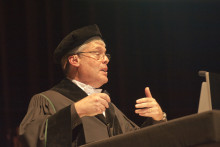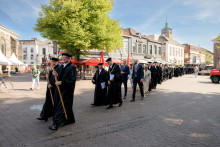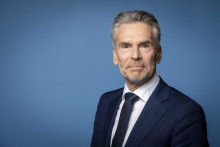Why is educational renewal so important to you?
‘I was an engineering professor going back to the mid-80s. In the early 90’s, I started to notice and write about the mismatch between the way we were teaching and the kinds of jobs our students were taking. At the time, there was a lot of economic and technological change that affected engineering work, and real engineering is primarily about designing things for people to help people. But it had become more about maths and science.
I was concerned that my colleagues considered the world as very stable, that it would be the same tomorrow as it is today. But there were things coming that would upset this, and we needed to take some steps.
Now, 20 years later, we are still having the same conversation and now it is even more urgent. We have seen massive changes in the availability of information through the Internet. Information is cheap and easily shared. Young people can read the same papers as experts. This causes a shift of power where we no longer tell students what to do, but we listen to them. “I know” transforms into “I trust”.
What is the most urgent thing that needs to be understood in education today?
Our understanding of what we are changing. Oftentimes we think the object of change is the content, curriculum or pedagogy and we focus our efforts there, but the real object of change is the underlying culture. If you ask professors stuck in an old culture to change with the same old underlying assumptions, you will get back the status quo plus a few bells and whistles. If you work on the assumptions by working on the language and the stories of culture, then some small number of people will start to do things in alignment with the new idea. Thereafter, others will witness authentic engagement and they will change, first in their hearts, and then in their heads. Real change comes from people feeling different about the experience. An example could be to let students make mistakes. To not interrupt them with what ‘I know’, but to let them fail because ‘I trust’ that they will find their way eventually and learn from it. What we really need is to somehow figure out a way to have people come from ‘I know’ and have them move to ‘I trust’. Guiding students is different from telling them what to do.
What are your impressions of the educational renewal at the UT?
I have just learned about some of the details this week, and I am looking forward to listening and learning more. But my sense here in Twente is that the motivations for change are deeply felt. There is authentic change, which is not made in an effort to show well to the outside world but stems from a sense of urgency. Next to that, to my understanding, this is one of the few universities that has invested significantly in its leadership and organizational leadership development. I learned that there are coaches available, that a number of the faculty and staff have gone through change management courses. That’s very rare. The university should be applauded for having that insight to do that.
One thing to keep an eye on going forward, I take from my experience in Singapore, another country with a strong culture of planning. Planning depends upon your ability to make good predictions, and strong adherence to a plan works best when you’ve done the thing you’re planning a number of times and it has become routine. This is not the case in educational transformation. Everyone is doing something that is a large departure from the normal routine. In the same way that we want our students to learn to experiment and to be OK with failing and iterating, we need to be OK with failing and iterating. It is fairly certain in a large change effort that you will realize that some of your ideas on how things would work will be wrong. Don’t fall in love with the plan. Instead, stay in love with the directions and changes in assumptions you’re seeking. Reflect on what you’ve learned from the failure, what things you want to preserve, and what things you want change, and iterate.
In Twente, the educational reform takes place in all educational programs at once. Are we still flexible enough to be adapt the plan?
I had some conversations with the head of the ATLAS program, which is starting out small. I think starting small is usually a good idea. My own experience is that it is important to pilot things and that it is easier to do that in the small. If things are moving simultaneously everywhere, it is important to have the changes and corrections to the first iteration occur quickly. If things aren’t working well in the large, “smallify” them and try again. Beg, borrow, and steal from other models that are working. If things start to not work in this process, the steps that you take matter and particularly it is important to be straightforward to say: “It didn’t work the way we thought, let’s pause and take a step back and now do something different and figure it out.”
I very much admire what the university is doing. It is not easy and it took courage to take the steps the university is taking. I believe that with the kind of heart and authenticity that the efforts been undertaken with, that given enough time and persistence on task and an understanding and patience that the plan won’t necessarily work the way you wanted it to, you all will figure it out in a nice way.
Read an article from David Goldberg in UT Nieuws Magazine.







